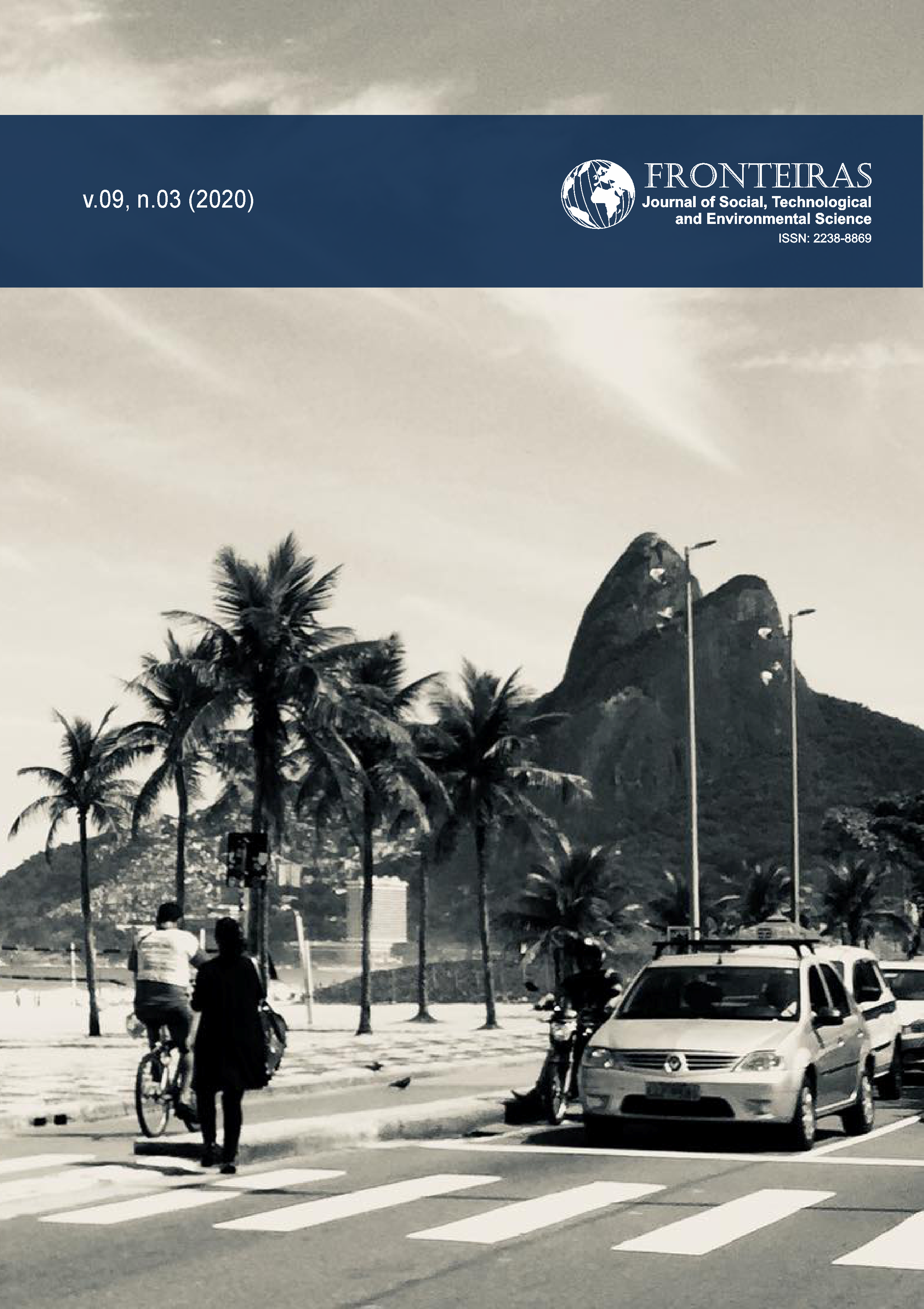Contributions to Sustainable Development: The Experience of Building a Sectoral Model for the Alignment of Strategies
DOI:
https://doi.org/10.21664/2238-8869.2020v9i3.p380-396Keywords:
Sustainable Development, Libraries, Strategic Alignment, Evidence-Based Practice, CompetenciesAbstract
This paper presents the experience of building a sectoral strategy alignment model to contribute to sustainable development in Portugal. The methodological proposal for the alignment of Portuguese libraries' strategies against the 2030 Agenda is framed in an Evidence Based Practice perspective and supported by guiding tools, aiming to answer the research question: How can libraries collect evidence and evaluate their contribution for sustainable development? The conceptual model is developed in four stages - Pre-planning and learning; Plan in alignment; To implement; and Use evidence for library advocacy and promotion – and has been tested by Information Documentation professionals and students of the Master of Information Management and Curation (NOVA FCSH and NOVA IMS, Portugal). In both cases, learning skills and practices were developed to (re) use / adapt indicators and statistical data through the collection, processing and strategic alignment of evidence.
References
Bill & Melinda Gates Foundation. 2015. “Global Libraries: Impact Planning and Assessment Guide.” http://www.publiclibraryadvocacy.org/wp-content/uploads/2015/06/IPA-Guide-2015.pdf.
Brundiers, Katja, and Arnim Wiek. 2017. “Beyond Interpersonal Competence: Teaching and Learning Professional Skills in Sustainability.” Education Sciences 7 (1): 39. https://doi.org/10.3390/educsci7010039.
Eizaguirre, Almudena, María García-Feijoo, and Jon Paul Laka. 2019. “Defining Sustainability Core Competencies in Business and Management Studies Based on Multinational Stakeholders’ Perceptions.” Sustainability 11 (8): 2303. https://doi.org/10.3390/su11082303.
Hernon, Peter, Robert E. Dugan, and Joseph R. Matthews. 2015. Managing with Data: Using ACRLMetrics and PLAmetrics. Chicago: ALA.
IFLA. 2018. “Libraries and the Sustainable Development Goals: A Storytelling Manual.” Den Haag. https://www.ifla.org/files/assets/hq/topics/libraries-development/documents/sdg-storytelling-manual.pdf.
———. 2020. “Libraries, Development and the United Nations 2030 Agenda.” Ifla.Org. IFLA - International Federation Federation of Library Associations and Institutions. 2020. https://www.ifla.org/libraries-development/.
ISO. 2014a. “ISO 11620:2014. Information and Documentation - Library Performance Indicators.” Genebra: ISO.
———. 2014b. “ISO 16439:2014. Information and Documentation - Methods and Procedures for Assessing the Impact of Libraries.” Genebra: ISO.
Koufogiannakis, Denise, and Alison Brettle. 2016. Being Evidence Based in Library and Information Practice. London: Facet.
Markless, Sharon, and David Streatfield. 2006. Evaluating the Impact of Your Library. London: Facet Publishing.
Ochôa, Paula, and Leonor Gaspar Pinto. 2007. “Estratégias de Gestão Baseada Em Evidências : Investigação e Prática Em Serviços de Informação.” In IX Congresso de Bibliotecários, Arquivistas e Documentalistas - Bibliotecas e Arquivos, 1–9. https://www.bad.pt/publicacoes/index.php/congressosbad/article/view/515.
———. 2014. “Sustainability Metrics in Library and Information Services: A Quality Management Framework.” In IATUL Conference, 1–10. IATUL - International Association of Scientific and Technological University Libraries. https://docs.lib.purdue.edu/iatul/2014/plenaries/5/.
———. 2015. “Sustentabilidade e Medição de Impactos Em Organizações Culturais: O Papel Dos Indicadores de Literacia Mediática, Comunicação e Cidadania In S. Pereira, M. Toscano.” In Literacia, Media e Cidadania - Livro de Atas Do 3.o Congresso, edited by Sara Pereira and Margarida Toscano, 408–20. Braga: CECS.
———. 2018. “Práticas de Aprendizagem Partilhadas Em Ciência de Informação : Cocriação e Coavaliação.” In CNAPPES 2018 - 5o Congresso Nacional de Práticas Pedagógicas No Ensino Superior, 297–302. Braga: Universidade do Minho.
———. 2019. “Gathering Evidence for Sustainable Development Goals: An Alignment Perspective.” In 10th International Evidence Based Library and Information Practice Conference (EBLIP 10). Glasgow.
Pinto, Leonor Gaspar, and Paula Ochôa. 2017. “Public Libraries’ Contribution to Sustainable Development Goals: Gathering Evidences and Evaluating Practices.” In IFLA WLIC 2017 – Wrocław, Poland – Libraries. Solidarity. Society, 1–10. http://library.ifla.org/1946/.
———. 2018a. “Alinhamento e Evidências Do Contributo Para o Desenvolvimento Sustentável: Guia Para Bibliotecas.” lisboa: CHAM – Centro de Humanidades; NOVA FCSH e Universidade dos Açores.
———. 2018b. “Public Libraries Contribution to Sustainable Development Goals: Gathering Evidence and Evaluating Practices in Portugal.” In Going Green: Implementing Sustainable Strategies in Libraries around the World, edited by Petra Hauke, Madeleine Charney, and Harri Sahavirta, 46–59. Berlin: De Gruyter Saur.
———. 2019a. “Agenda 2030 e Bibliotecas: Uma Proposta Metodológica Para o Alinhamento de Estratégias.” In Atas CIAIQ 2019: Investigação Qualitativa Em Ciências Sociais, 3:420–28.
———. 2019b. “Aligning Libraries’ Performance with Sustainable Development Goals: A Methodological Proposal.” In Abstracts Book of the 4th World Conference on Qualitative Research, 1:281–85.
———. 2019c. “Aligning Public Libraries’ Performance with Sustainable Development Goals: A Strategic and Evidence-Based Approach.” In 13th International Conference Performance Measurement in Libraries: Book of Proceedings, 23–30. https://libraryperformance.files.wordpress.com/2020/06/libpmcproceedings2019.pdf.
Puttick, Ruth, and Joe Ludlow. 2012. “Standards of Evidence for Impact Investing.” London: Nesta. https://media.nesta.org.uk/documents/standards_of_evidence_for_impact_investing.pdf.
Scriven, Michael. 1991. Evaluation Thesaurus. London: Sage.
Setó-Pamies, Dolors, and Eleni Papaoikonomou. 2016. “A Multi-Level Perspective for the Integration of Ethics, Corporate Social Responsibility and Sustainability (ECSRS) in Management Education.” Journal of Business Ethics 136 (3): 523–38. https://doi.org/10.1007/s10551-014-2535-7.
Todd, Ross J. 2015. “Evidence-Based Practice and School Libraries: Interconnections of Evidence, Advocacy, and Actions.” Knowledge Quest 43 (3): 8–15.
United Nations. 2015. “A/RES/70/1 - Transforming Our World: The 2030 Agenda for Sustainable Development.” https://sustainabledevelopment.un.org/index.php?page=view&type=111&nr=8496&menu=35.
Wiek, Arnim, Michael J. Bernstein, Rider W. Foley, Matthew Cohen, Nigel Forrest, Christopher Kuzdas, Braden Kay, and Lauren Withycombe Keeler. 2015. “Operationalising Competencies in Higher Education for Sustainable Development.” In Routledge Handbook of Higher Education for Sustainable Development, edited by Matthias Barth, Gerd Michelsen, Marco Rieckmann, and Ian Thomas, 241–60. London: Routledge.
Wiek, Arnim, Lauren Withycombe, and Charles L. Redman. 2011. “Key Competencies in Sustainability: A Reference Framework for Academic Program Development.” Sustainability Science 6 (2): 203–18. https://doi.org/10.1007/s11625-011-0132-6.
Downloads
Published
How to Cite
Issue
Section
License
This journal offers immediate free access to its content, following the principle that providing free scientific knowledge to the public, we provides greater global democratization of knowledge.
As of the publication in the journal the authors have copyright and publication rights of their articles without restrictions.
The Revista Fronteiras: Journal of Social, Technological and Environmental Science follows the legal precepts of the Creative Commons - Attribution-NonCommercial-ShareAlike 4.0 International. 


